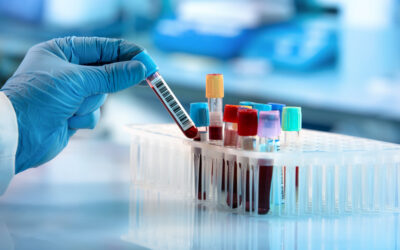Protein quantitation by liquid chromatography-tandem mass spectrometry (LC-MS/MS) has become an increasingly popular field for pharmacokinetics study in the drug discovery phase. Traditional method development using a ligand binding assay usually requires 2-3 months. By using LC-MS/MS techniques, development times can be reduced to one week. In this white paper, we discuss testing the robustness of membrane affinity versus magnetic beads by using both methods to analyze antibody samples.
The magnetic bead approach and membrane approach produced comparable validation parameters including linearity, intra-, inter-day accuracy and precision, carryover, dilution integrity, matrix effect, specificity, and selectivity.
The two validated strategies for protein immunoaffinity purification were compared and both methods offered the same LLOQ of 0.05 μg/mL. The main differences was with the sample processing time. Specifically, the sample immunoaffinity purification (IP) processing time for a 96-well plate with the magnetic bead method was 3-4 hours in comparison to the 10-20 minutes by the membrane approach. The magnetic bead method was also more prone to operational pipetting errors.

WuXi AppTec is working to revolutionize bioresearch by advancing discovery efforts and delivering the high-quality data clients need. By working closely with chemistry, biology and pharmacology for effective lead selection during discovery, our team is able to provide you with the expertise across a diverse range of compound classes with a breadth of experience in a variety of species, strains, matrices and microsampling techniques.
Learn more about Discovery Bioanalysis services
Follow us on LinkedIn.
As a global company with operations across Asia, Europe, and North America, WuXi AppTec provides a broad portfolio of R&D and manufacturing services that enable the global pharmaceutical and life sciences industry to advance discoveries and deliver groundbreaking treatments to patients. Through its unique business models, WuXi AppTec’s integrated, end-to-end services include chemistry drug CRDMO (Contract Research, Development and Manufacturing Organization), biology discovery, preclinical testing and clinical research services, helping customers improve the productivity of advancing healthcare products through cost-effective and efficient solutions. WuXi AppTec received an AA ESG rating from MSCI for the fourth consecutive year in 2024 and its open-access platform is enabling around 6,000 customers from over 30 countries to improve the health of those in need – and to realize the vision that “every drug can be made and every disease can be treated.”


